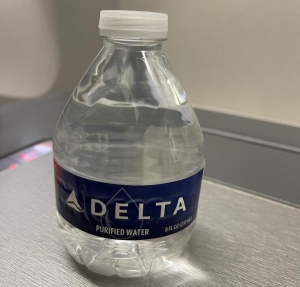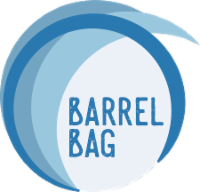
If we all used reusable cups and bottles for anything we drank, from coffee to water to beer, we could change the world! But we don’t. Why? Despite amazing advances in bioplastic technology, there is currently too much demand in our global throw-away culture to fight plastic pollution head-on. Consider the rise in shipping costs if EVERYBODY switched to glass or metal.
“It is not as simple as ‘plastic is bad’ so let’s use something else,” warns Eliot Whittington, policy program director at the University of Cambridge’s Institute for Sustainability Leadership. “It will require a complete change in the way we use product packaging at the moment. Most packaging is now used just once and thrown away. We need to move away from that. It needs some form of leadership from government.”
There are caveats, as with all new technologies, that prevent wide-scale adoption. Bioplastics and tetra-paks require special recycling plants, which are not available everywhere. They are generally more expensive to produce (a biodegradable forkmade from plant starch costs 3.5 times more than a basic white plastic one) and can often contaminate the traditional recycling process. Which is why it’s so important to continue to recycle right.

Delta Airlines, we know you can do better.
Despite countries pushing ahead with their conservation efforts, we can see that overfishing and habitat destruction faces an enforcement problem. By charging fishers for access to areas just outside the MPAs, enforcement could pay for itself. It’s what we do to protect the integrity of our waterways and national lands, why not the ocean as well?
If crafted correctly, the CFA could provide a perpetual budget for the enforcement of MPAs. Coupled with a new international funding mechanism like the Community Land Rights and Conservation Finance Initiative (CLARIFI), we could see MPAs fulfill their promise of being a superpower in the fight to conserve and heal our oceans.
We have severely altered two-thirds of the ocean, with only 2.8% of the ocean fully or highly protected from fishing. The problems we face start with our actions and flow elsewhere, not just downstream. Scientists have found major plastic pollution in the MPAs in the Mediterranean. Over half of the plastic found came from elsewhere.
If these big blue walls are breached, if these precious superhighways for marine life are exploited, everyone loses. Loss of biodiversity = lower productivity = lower economic performance. We know that MPAs work to various degrees, supercharging the health of ecosystems by allowing fish to mature, reversing the trend of shrinking sea life from fishery-induced evolution. If we can support indigenous communities in their effort to restore degraded MPAs, it will go a long way in maintaining the health of our oceans.
Tune into the Ocean Plastic Virtual Summit which is free to join and runs from Jan 25-26, you can sign up here.
OPLN will be holding a US-specific plastic treaty dialogue on Jan 27 from 12-2 eastern. Open invitation, no fees for participation.
Thank you to our ecosystem of partners for stepping up the past two years, keeping the Barrel Bag community connected and thriving.

We are ecstatic to share with you that our team and our partnerships have grown! We are also thrilled to join The Global Plastics Treaty Dialogue. While we strongly believe in the power of one, we know the fight against plastic pollution takes a united force for good. Here is to a fantastic start of the year, and a continued commitment to keeping our oceans healthy.




